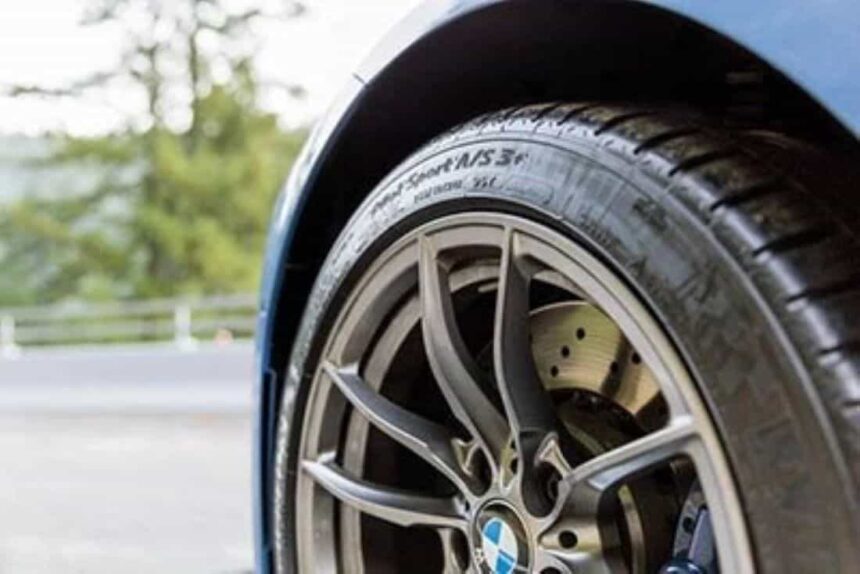High-performance tires are an essential component of any sports car or luxury vehicle. These tires are designed to provide excellent handling, cornering, and braking performance at high speeds. Choosing the right tire can make a significant difference in the driving experience, safety, and overall satisfaction with the vehicle. This article will provide an overview of the best high-performance tires for all-season use.
Characteristics of High-Performance Tires
High-performance tires are designed with specific characteristics that enable them to perform at a high level. The following are some of the key features of high-performance tires:
- Tread pattern: High-performance tires typically have a directional or asymmetrical tread pattern that provides excellent grip and handling in wet and dry conditions.
- Tread compound: The compound used in high-performance tires is softer than in standard tires, allowing for better grip and improved performance.
- Sidewall construction: High-performance tires have stiffer sidewalls that provide better cornering and stability.
- Speed rating: High-performance tires are rated for high speeds, typically ranging from H (130 mph) to Y (186 mph).
- Load index: High-performance tires have a high load index, which means they can carry more weight than standard tires.
All-Season Tires
All-season tires are designed to provide good performance in a variety of weather conditions, including dry, wet, and light snow. They are a popular choice for drivers who want a tire that can handle different conditions without needing to change tires. All-season tires are also cost-effective since they eliminate the need for separate summer and winter tires.
Advantages and Disadvantages of All-Season Tires
All-season tires offer several advantages and disadvantages compared to other types of tires. Here are some of the key advantages and disadvantages of all-season tires:
Advantages:
- Versatility: All-season tires are designed to perform well in a variety of weather conditions, including rain, light snow, and dry conditions. This makes them a good choice for drivers who live in areas with mild to moderate weather conditions and don’t need specialized tires for different seasons.
- Convenience: Since all-season tires can be used year-round, they eliminate the need to switch tires with the changing seasons, which can be a hassle and additional cost.
- Longer tread life: All-season tires typically have longer tread life than other types of tires, such as summer or winter tires. This is because they are designed to be used year-round and wear more evenly.
- Comfort: All-season tires generally provide a smoother and more comfortable ride compared to other types of tires, thanks to their softer rubber compound.
Disadvantages:
- Performance limitations: While all-season tires are designed to perform well in a variety of weather conditions, they can’t match the specialized performance of summer or winter tires in extreme weather conditions. In heavy snow or extreme heat, for example, specialized tires will provide better traction and handling.
- Handling: All-season tires can compromise handling performance compared to high-performance summer tires, which are designed for sporty driving. In addition, all-season tires may not provide the same level of grip and stability in wet or dry conditions as high-performance summer tires.
- Noise: All-season tires tend to be louder than other types of tires, particularly at high speeds. This is due to their softer rubber compound and more aggressive tread pattern.
- Lower fuel efficiency: All-season tires tend to have higher rolling resistance than summer tires, which can lower fuel efficiency and increase fuel consumption.
There are two types of all-season tires: standard and performance. Standard all-season tires are designed for everyday use, while performance all-season tires are designed for sports cars and high-performance vehicles.
Benefits of Using All-Season Tires
All-season tires are designed to provide adequate traction and handling in a variety of weather conditions, including dry, wet, and light winter conditions. Here are some of the benefits of using all-season tires:
- Versatility: One of the main benefits of all-season tires is their versatility. They are designed to perform well in a wide range of weather conditions and temperatures, making them a good choice for drivers who want to use one set of tires year-round.
- Cost-effective: Since all-season tires can be used throughout the year, you don’t need to purchase separate tires for different seasons. This can be cost-effective in the long run, especially if you live in an area where the weather doesn’t get too extreme.
- Convenience: With all-season tires, you don’t need to worry about changing your tires every season. This saves you time and hassle and allows you to focus on other important tasks.
- Improved handling: All-season tires are designed to provide better handling and traction than standard all-weather tires. This means you can expect better cornering and braking performance in a variety of weather conditions.
- Better comfort: All-season tires are generally more comfortable to ride on than winter tires, which can be noisy and rough on the road. They also tend to have a longer tread life than winter tires, which means you don’t need to replace them as often.
Best High-Performance Tires for All-Season
The following are the best high-performance tires for all-season use:
1. Michelin Pilot Sport A/S 3+
The Michelin Pilot Sport A/S 3+ is a high-performance all-season tire that provides excellent handling, cornering, and braking performance in wet and dry conditions. It features a directional tread pattern that provides improved water evacuation, reducing the risk of hydroplaning. The tire’s tread compound includes silica and sunflower oil, which enhances its performance in low temperatures and provides a better grip on wet roads. The Michelin Pilot Sport A/S 3+ also features a high-performance sidewall that provides excellent handling and stability during high-speed manoeuvres. Customer reviews consistently praise the tire’s excellent performance, especially in wet conditions.
2. Continental ExtremeContact DWS06
The Continental ExtremeContact DWS06 is a performance all-season tire that offers excellent handling, traction, and comfort. Its asymmetrical tread pattern provides optimal grip in wet and dry conditions while reducing noise levels. The tire’s tread compound includes a high amount of silica, which enhances its wet traction capabilities and improves fuel efficiency. The Continental ExtremeContact DWS06 also features a high-performance sidewall that provides superior handling and cornering capabilities. Customer reviews consistently praise the tire’s excellent performance in both wet and dry conditions, as well as its long-lasting tread life.
3. Pirelli P Zero Nero All Season
The Pirelli P Zero Nero All Season is a high-performance tire that offers excellent handling and traction in all weather conditions. Its asymmetric tread pattern provides superior grip in wet and dry conditions, while its innovative compound enhances its performance in low temperatures. The tire’s high-performance sidewall provides excellent stability and cornering capabilities, making it a popular choice for sports cars and high-performance vehicles. Customer reviews consistently praise the tire’s outstanding performance in both wet and dry conditions, as well as its comfortable ride and long-lasting tread life.
4. Bridgestone Potenza RE980AS
The Bridgestone Potenza RE980AS is a high-performance all-season tire that offers excellent handling and traction in a variety of weather conditions. Its unique tread pattern features wide shoulder blocks for enhanced cornering and stability, while its NanoPro-Tech compound provides improved grip on wet and dry roads. The tire’s high-performance sidewall provides excellent handling and stability during high-speed manoeuvres, making it a popular choice for sports cars and high-performance vehicles. Customer reviews consistently praise the tire’s excellent performance in wet and dry conditions, as well as its comfortable ride and long-lasting tread life.
5. Goodyear Eagle Sport All-Season
The Goodyear Eagle Sport All-Season is a high-performance tire that provides excellent handling and traction in all weather conditions. Its asymmetric tread pattern provides optimal grip in wet and dry conditions while reducing road noise levels. The tire’s silica-enhanced compound provides excellent wet traction and improved fuel efficiency. The Goodyear Eagle Sport All-Season also features a high-performance sidewall that provides superior handling and stability during high-speed maneuvers. Customer reviews consistently praise the tire’s excellent performance in both wet and dry conditions, as well as its long-lasting tread life.
Conclusion
Choosing the right high-performance tire for all-season use can significantly improve the driving experience, safety, and overall satisfaction with a vehicle. The Michelin Pilot Sport A/S 3+, Continental ExtremeContact DWS06, Pirelli P Zero Nero All Season, Bridgestone Potenza RE980AS, and Goodyear Eagle Sport All-Season are the best high-performance tires for all-season use. Each tire offers unique features and benefits that can cater to different driving needs and preferences. Regardless of which tire is chosen, it is essential to prioritize safety and performance when making the decision.










